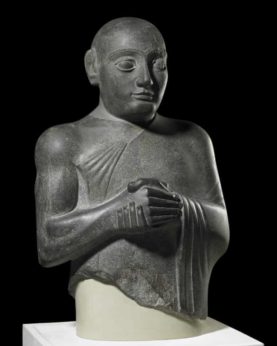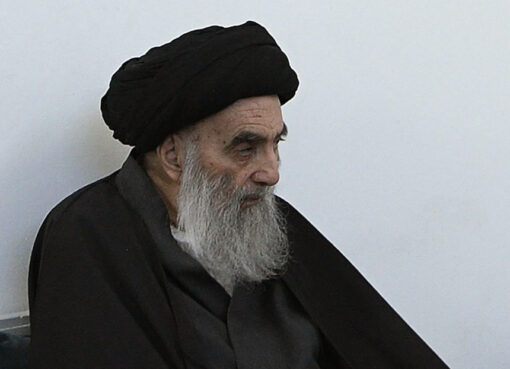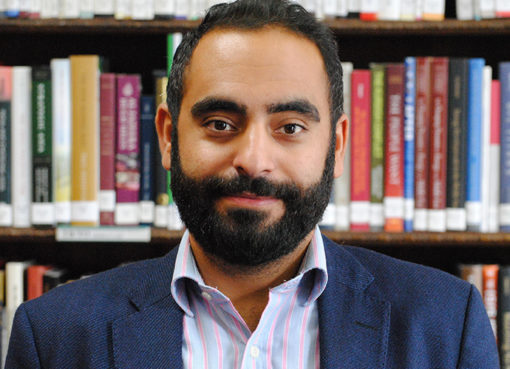Work of trainees in Iraq has enabled new understanding of objects going on show in UK
The exhibition features artefacts removed from Iraq in the 19th and early 20th centuries. Composite: British Museum
For decades they have been part of the collection of the British Museum, appreciated for their individual significance but in many cases shorn of much of their context owing to the circumstances of their discovery and retrieval during the buccaneering period of early archaeology.
Now dozens of important artefacts that were removed from Iraq in the late 19th and early 20th centuries are being brought back into focus in an exhibition drawing on ground breaking discoveries made by Iraqi archaeologists amid the turbulence of the country’s recent history.
Among the objects on display is a small dolerite statue dating to around 2130BC, purchased by the museum in the 1930s. It depicts a king called Gudea, who ruled the ancient city of Girsu, one of the world’s first urban civilisations, on the site of modern-day Tello in southern Iraq.

The dolerite statue of King Gudea, from 2130BC. Photograph: British Museum
The statue shows him in a position of prayer, as do many others of him, according to Sebastien Rey, a curator of ancient Mesopotamia at the museum. But while experts knew from written sources that Gudea constructed a temple in his city, no trace of it had been found.
That changed thanks to a discovery made through the Iraq emergency heritage scheme, set up by the British Museum in 2015 to train local archaeologists in heritage protection at a time when many of the country’s historical sites were under threat from destruction by Islamists.
By revisiting the site after decades, Rey and a team of local trainee archaeologists discovered not only the site of the king’s 4,000-year-old temple, but also a bakery attached to the temple where huge quantities of bread would have been produced as offerings to the gods.
It is believed to be the first example of this kind of set-up in history, ranking it as an “absolutely 10/10 and beyond” discovery, Rey said.
The purpose of other museum-owned items that have puzzled experts for decades has also become clear as a result of the heritage scheme digs. For example, a collection of inscribed cones: similar items were found inside the temple’s walls as talismanic deposits.
Iraqi law forbids archaeological discoveries from being removed from the country, so the new finds will be represented in photographs, reconstructions and video alongside the museum’s own collection.
The exhibition, titled Ancient Iraq: New Discoveries, will visit the Great North Museum in Newcastle and the University of Nottingham Museum between March and December.
As 2020 begins…
… we’re asking readers, like you, to make a new year contribution in support of the Guardian’s open, independent journalism. This has been a turbulent decade across the world – protest, populism, mass migration and the escalating climate crisis. The Guardian has been in every corner of the globe, reporting with tenacity, rigour and authority on the most critical events of our lifetimes. At a time when factual information is both scarcer and more essential than ever, we believe that each of us deserves access to accurate reporting with integrity at its heart.
More people than ever before are reading and supporting our journalism, in more than 180 countries around the world. And this is only possible because we made a different choice: to keep our reporting open for all, regardless of where they live or what they can afford to pay.
We have upheld our editorial independence in the face of the disintegration of traditional media – with social platforms giving rise to misinformation, the seemingly unstoppable rise of big tech and independent voices being squashed by commercial ownership. The Guardian’s independence means we can set our own agenda and voice our own opinions. Our journalism is free from commercial and political bias – never influenced by billionaire owners or shareholders. This makes us different. It means we can challenge the powerful without fear and give a voice to those less heard.
None of this would have been attainable without our readers’ generosity – your financial support has meant we can keep investigating, disentangling and interrogating. It has protected our independence, which has never been so critical. We are so grateful.
As we enter a new decade, we need your support so we can keep delivering quality journalism that’s open and independent. And that is here for the long term. Every reader contribution, however big or small, is so valuable.
Source: The Guardian, Wed 29 Jan 2020








Comment here